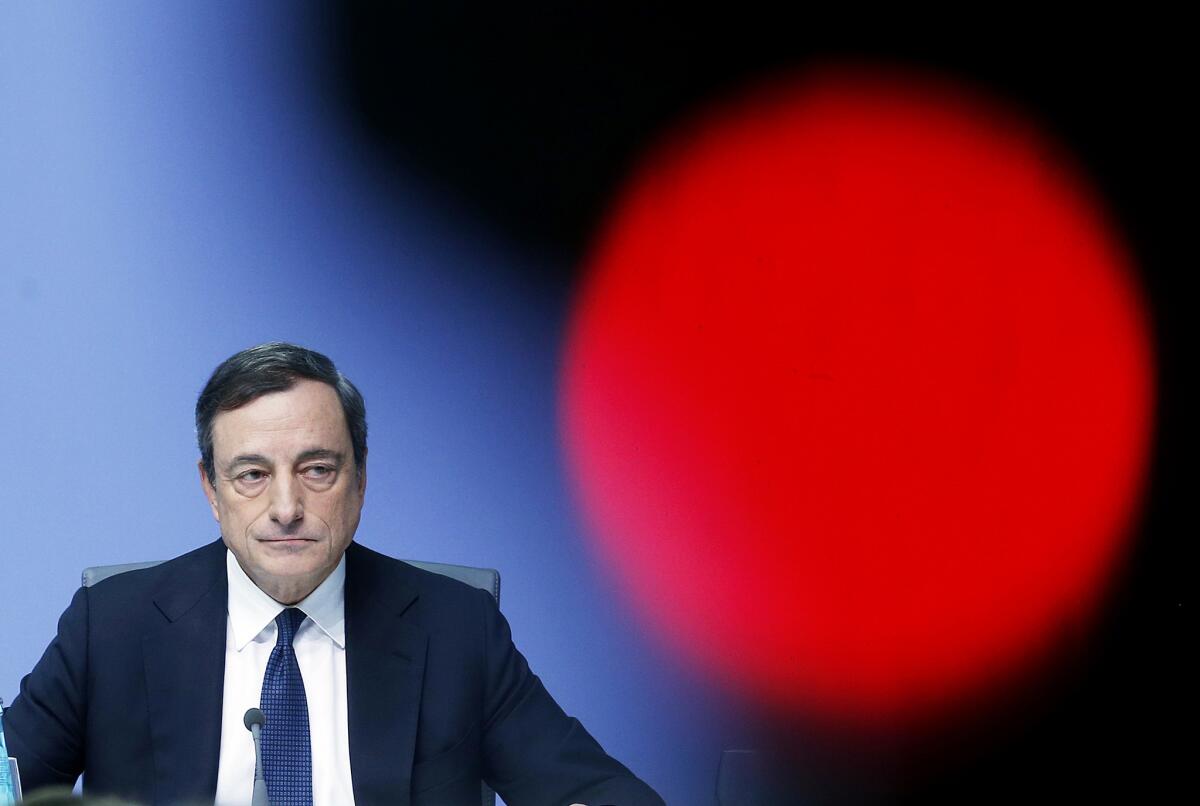Draghi’s QE plan bigger than expected

- Share via
Mario Draghi has proposed spending as much as $1.3 trillion as the European Central Bank seeks to revive inflation in the euro area.
The ECB president and his Executive Board recommended asset purchases of 50 billion euros a month until December 2016, according to two euro-area central-bank officials. The 25-member Governing Council is gathering in Frankfurt on Wednesday to discuss the plan and could make changes before a final decision on Thursday, the people said, asking not to be identified as the proposal is private. An ECB spokesman declined to comment.
While Draghi has argued that quantitative easing is needed to prevent the euro area slipping into a deflationary spiral, German policy makers say it eases the pressure for economic reform. The council’s debate will also be complicated by arguments over whether the risks incurred in the new bond-buying plan should be shared across the region’s 19 central banks or kept within national boundaries.
The proposal “looks larger than implied by the ECB’s previous comments about the size of its balance sheet, especially if it refers to the new sovereign QE program and does not include the existing ones,” said Riccardo Barbieri Hermitte, chief European economist at Mizuho International Plc in London. “A lot will depend on the risk-sharing features of the program.”
Draghi has said he intends to expand the ECB’s balance sheet to the levels seen in early 2012, or about 3 trillion euros. While the central bank has assets of about 2.2 trillion euros currently, that may shrink as 200 billion euros of outstanding long-term loans mature in coming weeks.
Purchases of sovereign debt or other assets in addition to the ECB’s existing covered-bond and asset-backed securities programs wouldn’t start before March 1, one of the people said. It hasn’t yet been decided if the target of 50 billion euros a month would include the existing programs, or how much of it would be sovereign debt.
More to Read
Inside the business of entertainment
The Wide Shot brings you news, analysis and insights on everything from streaming wars to production — and what it all means for the future.
You may occasionally receive promotional content from the Los Angeles Times.










